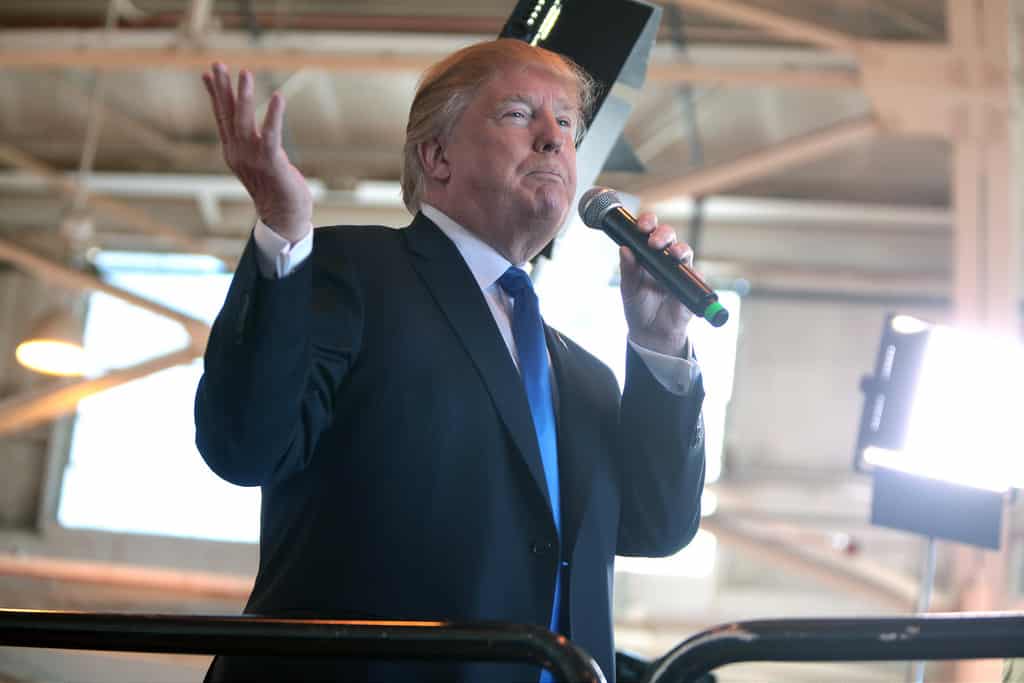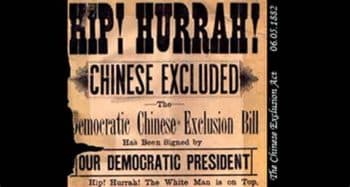Mr. Trump and the Damage Done: Where does the Republican Party Go from Here?
Steven Jonas, MD, MPH![]()
Special to The Greanville Post | Commentary No. 54: “Mr. Trump and the Damage Done: Where does the Republican Party Go from Here? ”

GOP establishment protestations aside, Trump is simply Repubican values without the filters. Photo by Gage Skidmore 
The headline for the lead New York Times editorial for August 21, 2016 was “Mr. Trump and the Damage Done.” The Times used the Hindenburg Zeppelin disaster at Lakehurst, NJ in 1936 as an analogy. It of course expressed the hope that the polls are right, and will not change, and that Trump will go down to defeat, hopefully resoundingly. It went on to say:
“But while that will solve an immediate problem, a larger one will remain. The message of hatred and paranoia that is inciting millions of voters will outlast the messenger. The toxic effects of Trumpism will have to addressed.”
The Times was right and The Times was wrong. Those “toxic effects” will have to be addressed (although The Times did not note why that would have to happen) alright. “Trumpism” is indeed a convenient name. But what The Times totally missed is that what Trump has been spewing is nothing new for the Republican Party. As is well-known, Trump has only disposed of the dog whistles. As I have written on numbers of occasions in the past, Trump has only further extended the “Rightward Imperative,” the envelope of political speech that Repub. candidates have been expanding upon for years.

Max Boot is one of the most rabidly malicious neocons around, and that’s saying something in a political tribe in which everyone is either a mercenary, a sociopath or a warmongering shill for the American imperialist system, or all of the above. The ubiquitous Boot does know a thing or two about putrid rightwing waters.
Indeed, as Johnathan Chait said in a recent column in New York Magazine (August 22-Sept. 4, 2016) entitled “Neocons at Large: Thirteen years after the bombing of Baghdad, the former GOP thought-leaders are now outcasts.” He began the column by noting that:
“On February 29 [2016], Max Boot, a neoconservative columnist and then a foreign-policy advisor to Marco Rubio, wrote that if Donald Trump were to win his party’s nomination, it would ‘confirm everything bad the Democrats had ever said about the GOP.’ ”
Actually, unintentionally, both Mr. Chait and Mr. Boot have put their finger on a central problem for the Repubs. That the party really hasn’t changed in its principles for many years. (The main Trump exception in content is that he went off the reservation a bit on foreign policy — about which he appears to know even less than he knows about either domestic policy or what the U.S. government actually does and how it works. He does now seem to be wondering back.) As I have noted previously:
“For years to bring voters to their side [the Repubs.] have cloaked their real policy positions under the camouflage of the standard, generally meaningless ‘lower taxes, smaller government, etc.’ mantra [smaller government, that is, except in matters such as the constantly expanding “defense” budget, and freedom of choice in pregnancy questions, and what recreational mood-altering (‘RMADs’) to use, not to mention the perennial promotion of prejudice—racism, homophobia, religious bigotry, creationism, sexual repression, etc]. If possible this was done in a supposedly veiled way, by using the so- called ‘dog whistles.’ They allow the GOP for the most part not to talk too much about what they are really about. And when they do, with the abundance of dog whistles about, their noise means that GOP voters hardly notice what their policies really mean.”
It’s just that Trump puts the one he likes out there at full bellow, and many party leaders don’t like that.
On anti-immigrant ideology and policy, for example, as I have previously noted the Repubs. have had a strong strain of it since the party was founded in the 1850s. It was formed primarily from the Northern Whigs, but it did have a chunk of the strongly anti-immigrant American Party (along with the Temperance Movement) among its founding components. This has been expressed in legislation over the years, from the Chinese Exclusion Act of 1882, through the Immigration Act of 1924, which further excluded Asians, along with Southern and Eastern Europeans, and Jews, right down to the present functional illegalization of Latinos.

Although always profoundly “anti-subversive” in its filtration rules, the U.S. Exclusion Act was primarily a racist instrument. It should also be recalled that in the last quarter of the 19th century, the Irish immigrants themselves were seen and treated as “niggers” by the nativists, an extreme form of prejudice that now seems absurd.
[dropcap]A[/dropcap]nd of course the racism has been there since the nomination of Goldwater, one of whose claims to fame was that he had voted against the Civil Rights Act. Nixon’s “Southern Strategy” and his “drug war,” aimed particularly at people of color are well-known. McCain —a singularly odious politician—notably voted against making Martin Luther Kling Day a national holiday. And so on and so forth, in terms of policy and legislative emphasis (or rather non-emphasis) down to the present.
But now that its Presidential candidate has put away the dog-whistles for the Party, where indeed does it go from here? Does it backtrack a bit on domestic policy, especially on immigration? Maybe. (In fact there is a major struggle on this question going on within the Trump campaign at this time.) But just where else could it backtrack? Surely not on its primary goal which is to essentially shut down all of the functions of the Federal government that it does not like, first and foremost in the regulatory arena. [It must be pointed out that the immigration issue, especially in connection with Hispanics, is a tough issue to play for the Repubs, but also for the Democrats. There’s the consideration of the Hispanic vote to cater to, for starters, an area in which the Democrats, especially now thanks to Trump’s Big Mouth racist insults, have a momentary lock on. But there’s also the question of cheap labor, on which the Repubs, the foremost party in the defence of capitalist advantage, have a definite stake, one, for immediate profits, and two, because cheap and vulnerable labor brings workers wages down across the board.—Eds.]
So where do the Repubs. go from here? As is well-known, its base is shrinking. If it is ever to win another Presidential election, it is going to have to consolidate that base and firm it up (as well as expand gerrymandering and voter suppression — Trump is already working loudly on this one). It needs the racist/anti-(non-white) immigration whites that Trump attracts. But it also needs to bring back the Right-wing homophobic/misogynist Christians put off by Trump for a variety of reasons. It also needs to solidify its “anti-government” ethic which Trump does not shout about too much. So, assuming that Trump loses, where to turn? They won’t want another ill-informed loudmouth. But they will want a solid reactionary thoroughly behind the whole of the real Repub. platform, who can not only consolidate the base that Trump has assembled but who can also solidly bring the Christian Right back into enthusiastic support of the Party.

Cruz: The likely go-to candidate? Photo by Gage Skidmore 
That candidate could very well be Ted Cruz, and I think that an early trial run for a Cruz candidacy is already underway. Even though Cruz is the most prominent Repub. to have not endorsed Trump and he did it very publicly, he (or at least some of “his people”) is already making his move, actually through the Trump campaign itself. The latest leadership shift, which will most likely be the last, has, in case you didn’t notice, put Cruz people in prominent places.
Start with the new Campaign Manager, Kellyanne Conway, actually a pollster, not a political director type. But she did some work for Ted Cruz. Then there’s the new campaign chief, the notorious Steve Bannon from Breitbart, who supported both Trump and Cruz during the primaries. Of course the one real pro in the campaign, Paul Manafort, got caught with his boots muddied from the Dniester River (Ukraine), so he had to go. And anyway, Trump seemed to be tiring of the professional approach. Then there’s the new big money man. It’s one Robert Mercer, originally a Cruz supporter himself. I think that what we are seeing in the Trump campaign now is actually a dry run, a trying-things-out of sorts, for a Cruz campaign in 2020. Whether Trump can get far enough outside of his ego to see it and is going along with it, or is totally unaware of these developments (which, given his monstrous ego and miniscule political knowledge is possible) is immaterial. Assuming that Trump does lose (and given all of Clintons negatives, it is really a matter of him losing, not her winning), in my view Cruz will have the inside track for the 2020 Repub. nomination.
It doesn’t matter that many members of Congress don’t like him personally. He is a solid reactionary on every issue you can think of. He never made the Rubio mistake of once-upon-a-time joining in some reasonable compromise on current immigration policy. He has the “Cuban refugee” card to play (even though his father fled Batista, not Castro). Most importantly, in terms of possibly putting together a winning racist/Religious-Right coalition, he is a Reconstructionist/Dominionist. That is, he puts “the inerrant Bible” — that of course is the “King James version,” an English translation put together at the beginning of the reign of King James VI Scotland, I England, by a committee of 47 scholars and theologians, (what? they all spoke directly to God?) — above the Constitution.
And so, the Trump/Cruz-in-2020 campaign is trying out a number of strategies. Just look at what they are featuring. Prime right now is Hillary’s health. Indeed, she will be 73 in 2020. Even if the Clinton Foundation is totally shuttered by then, of course they will use it. Regardless of what Clinton might do as President, the emails will always be there. Policy? Stay as far away from that as possible, just as Trump does, because with the further tax-cuts-for-the-rich, there will be even fewer Federal dollars than there presently are to do anything — like better flood control, for example; are you listening, right-wingers in Louisiana? — for anybody. Of course, assuming Repub. Control at least of the House, “nothing will get done in Washington” and as they have done and are doing they will blame that all on the Democratic Administration: geniuses at that one they have always been.
Perhaps most important, because it is so easy to do with someone who doesn’t seem to know, really, truth from un-truth, the campaign Chief, Bannon, is a master not only at the Hitler/Goebbels Big Lie Technique, but also what might be called the “Little Lie” technique (like Hillary uses a catheter). And so now they use it freely. The creation of what some in the mainstream media are surprisingly referring to as the “fact-free zone” will be critical to a Cruz win in 2020. Nobody likes Cruz and ever fewer people, apparently, like Bannon. But they will make some pair in 2020. And Bannon, who has never been close to a Presidential campaign, is getting all kinds of experience, from the Right, where he needs to be, using Donald Trump, to get himself, and staff like Conway that he is bringing, ready for 2020. So where do the Repubs. go from here? Right to the even further, but rather quieter, Right. That’s right to Ted Cruise.
ABOUT THE AUTHOR
Senior Editor, Politics, Steven Jonas, MD, MPH is a Professor Emeritus of Preventive Medicine at Stony Brook University (NY) and author/co-author/editor/co-editor of over 30 books. In addition to being Senior Editor, Politics, for The Greanville Post, he is: a Contributor for American Politics to The Planetary Movement; a “Trusted Author” for Op-Ed News.com; a contributor to the “Writing for Godot” section of Reader Supported News; and a contributor to From The G-Man. He is the Editorial Director and a Contributing Author for TPJmagazine.us. Further, he is an occasional Contributor to TheHarderStuff newsletter, BuzzFlash Commentary, and Dandelion Salad. Dr. Jonas’ latest book is Ending the ‘Drug War’; Solving the Drug Problem: The Public Health Approach, Brewster, NY: Punto Press, available on Kindle from Amazon at http://www.amazon.com/Ending-Drug-War-Solving-Problem-ebook/dp/B01EO9RGKO/ref=sr_1_4?s=books&ie=UTF8&qid=1461783388&sr=1-4&keywords=Ending+the+Drug+War
His most recent book on US politics is The 15% Solution: How the Republican Religious Right Took Control of the U.S., 1981-2022: A Futuristic Novel (Trepper & Katz Impact Books, Punto Press Publishing, 2013, Brewster, NY), and available on Amazon.

![]()
